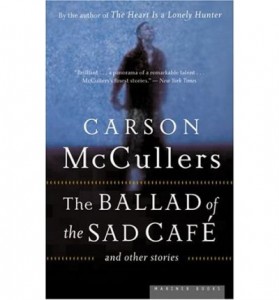--The blurb--
"A group of people have elected ambiguous and fascinating Mischa Fox to be their god. But his alter ego, Calvin Blick, is inspiring fear, and Rosa Keepe is swept into the battle between sturdy common sense and dangerous enchantment."
--The review--
Having read and enjoyed several Iris Murdoch novels as a romantic eighteen-year-old (even to the point of writing whole assignments about the books), I was surprised to find one in my workplace library that I had not yet come across. The Flight of the Enchanter uses the enigmatic Mischa Fox as its hook, but I was more intrigued by the devil-may-care Annette, whose antics open the novel.
Annette's adventures are enough to amuse as she does things that others would always wish but never do. However, Murdoch then departs from the humorous into the realms of the bizarre, introducing us instead to characters who take themselves far too seriously, chase (with said seriousness) after completely unexpected, unrealistic and at times psychotic sexual relationships, and completely lack Annette's sense of fun.
Humour returns again later when Rosa is trying to convince legions of dotty old ladies to continue funding the leftist leaflet founded by her forebears. Their classic comedy, along with the emotion of dressmaker Nina's story, is enough to restore faith in Murdoch's work - but overall Flight From The Enchanter proved disappointing, and therefore certainly not a good introduction to the author's novels. The characters' fascination with Mischa Fox seemed completely unfounded and failed to draw in the reader. Frankly, the novel's other, stronger characters did not even need him to tie the whole thing together, and the 'enchanter' of the title is more conceivably the safer or more successful lives that the characters have available to them, as opposed to what they would really like. A less serious misdemeanour is the suspension of disbelief required for the plot. My eighteen-year-old self felt betrayed.
Overall entirely forgettable; if you want the 'real' Iris experience, I'd recommend going elsewhere - The Unicorn, The Bell, or The Sea, The Sea are all good places to begin.
Works by Iris Murdoch (click me!)






